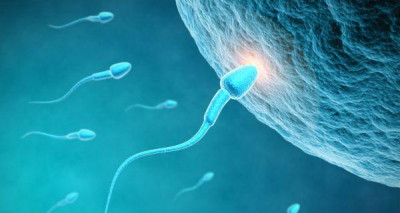Healthy sperm: Improving your fertility

Sperm Count is one of the most important characteristics in male fertility. Research shows that in more than half of infertility issues in couples, low sperm count is the cause. According to the World Health Organization, sperm count of more than 15 million sperms per milliliters in considered normal. In semen analysis which is a test for sperm quality to find the underlying cause of male infertility, the following parameters are measured: sperm count, sperm motility, sperm morphology, volume, fructose level and pH.
What determines sperm health?
Sperm health depends on various factors, including quantity, movement and structure:
- Quantity. You're most likely to be fertile if your ejaculate — the semen discharged in a single ejaculation — contains at least 15 million sperm per milliliter. Too little sperm in an ejaculate might make it more difficult to get pregnant because there are fewer candidates available to fertilize the egg.
- Movement. To reach and fertilize an egg, sperm must move — wriggling and swimming through a woman's cervix, uterus and fallopian tubes. This is known as motility. You're most likely to be fertile if at least 40 percent of your sperm are moving.
- Structure (morphology). Normal sperm have oval heads and long tails, which work together to propel them forward. While not as important a factor as sperm quantity or movement, the more sperm you have with a normal shape and structure, the more likely you are to be fertile.
Several environmental, lifestyle and medical causes can lower the sperm count significantly. Here is a list of the most common causes of low sperm count:
- Alcohol
- Drugs
- Smoking
- Stress
- Obesity
- Medical issues
- Long-term sitting, such as driving and bicycling or working at the computer for a long time

How to improve your sperm quality?
You can take simple steps to increase your chances of producing healthy sperm. For example:
- Maintain a healthy weight. Some research suggests that increasing BMI is linked with decreasing sperm count and sperm movement. Obesity can be associated with a low sperm count and impotence, possibly because of higher temperatures caused by excess fat near the testes.
- Eat a healthy diet. Choose plenty of fruits and vegetables, which are rich in antioxidants — and might help improve sperm health. Also avoid tobacco, refined carbohydrates, coffee, tea, alcohol and foods with artificial additives.
- Prevent sexually transmitted infections (STIs). Sexually transmitted infections — such as chlamydia and gonorrhea — are a cause of infertility for men. To protect yourself, limit your number of sexual partners and use a condom each time you have sex — or stay in a mutually monogamous relationship with a partner who isn't infected.
- Manage stress. Stress can decrease sexual function and interfere with the hormones needed to produce sperm. Researchers believe the hormone cortisol may partly explain these adverse effects of stress. Prolonged stress raises levels of cortisol, which has strong negative effects on testosterone. When cortisol goes up, testosterone levels tend to go down.
- Excercise. Moderate physical activity can increase levels of powerful antioxidant enzymes, which can help protect sperm. According to the American Society of Reproductive Medicine, regular exercise (five times a week for at least 45 minutes) and a healthy diet enhance fertility by keeping body weight at normal levels and relieving stress and anxiety.Excessive amounts of exercise (marathon running and associated training) can be a cause of infertility because it can lead to amenorrhea (absence of menstruation) in women and a lowered sperm count in men.
- Take nutritional supplements. For men, the most important supplemental nutrients to enhance fertility are vitamin C and zinc. Vitamin C (2,000 to 6,000 milligrams daily) helps prevent sperm from clumping or sticking together, thus improving the chances for fertility. Zinc supplementation (100 to 200 mg daily) has been shown to increase testosterone levels, sperm count and sperm motility. High zinc sources include oysters, organ meats, lean beef, turkey, lamb, herring, wheat germ, legumes and nuts.Other nutrients that have been shown to improve sperm counts include essential fatty acids, chromium, selenium, copper, vitamin E, vitamin D and B-complex vitamins, especially vitamin B12.





